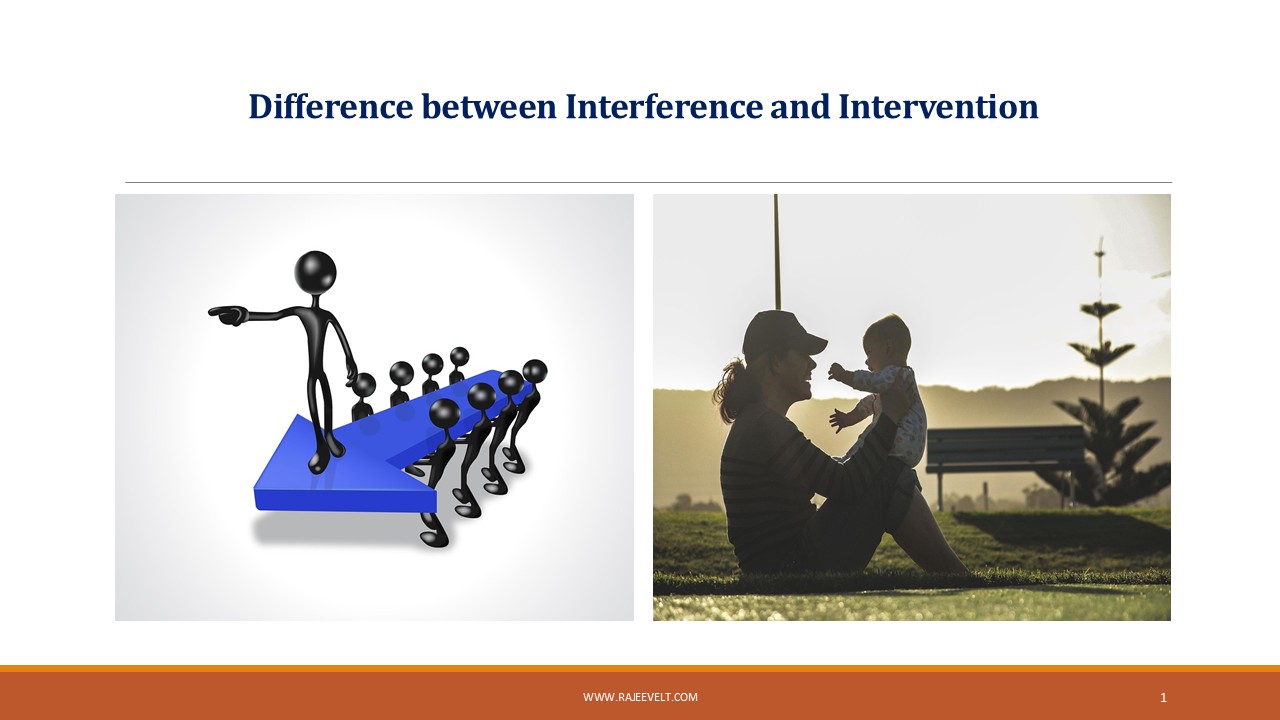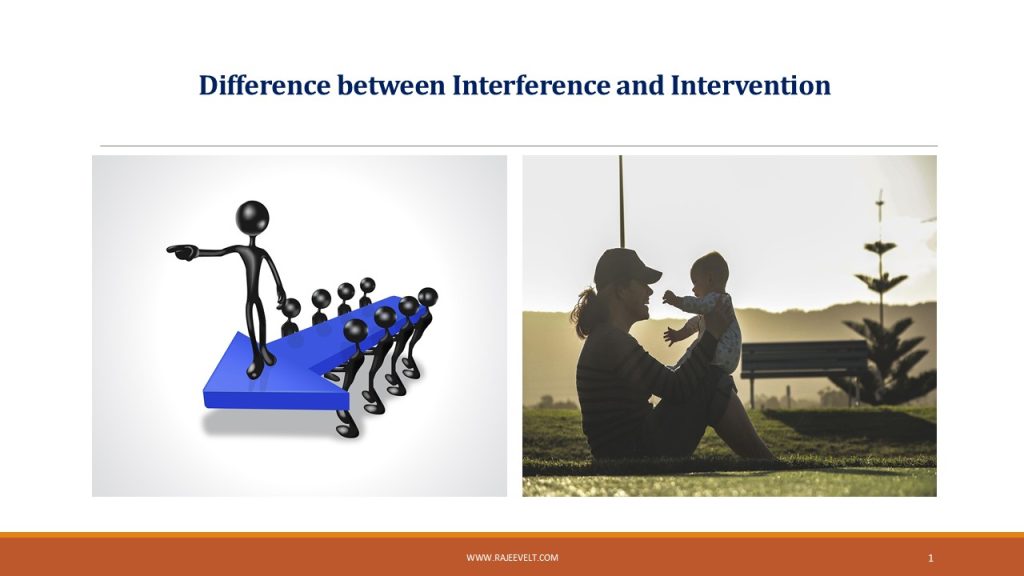Difference between Interference and Intervention
What are differences between interference and intervene? What is its importance, benefits and challenges? Explain it with example in a simple language: one example from parenting and other from leadership?

1. Difference between Interference and Intervention
- Interference → When someone gets involved in a situation without being asked or without adding real value, often disturbing the natural process.
It’s unwanted involvement. - Intervention → When someone steps in at the right time, for the right reason, and in the right way to help improve the situation or prevent harm.
It’s thoughtful, purposeful involvement.
2. Importance
- Interference: Usually not important, because it creates frustration or dependency.
- Intervention: Very important, because it provides guidance, protection, and direction when it’s truly needed.
3. Benefits
- Interference: Almost no benefit—often reduces confidence and freedom.
- Intervention: Builds trust, solves problems, prevents mistakes from becoming disasters, helps growth.
4. Challenges
- Interference: The challenge is that the person interfering may think they are “helping,” but actually they are stopping natural learning.
- Intervention: The challenge is knowing when to step in and when to step back. Too much intervention can turn into interference.
5. Examples
Parenting
- Interference: A parent constantly checking their child’s homework, correcting every line, not allowing the child to make mistakes. The child feels pressured and never learns independence.
- Intervention: The parent lets the child do homework freely, but if the child is really stuck on a concept, the parent explains and guides. This helps the child learn while still feeling supported.
Lesson/Outcome: Interference kills confidence, intervention builds confidence.
Leadership
- Interference: A boss micromanaging every small task of the team, not allowing creativity, and giving instructions for even trivial matters. The team feels demotivated.
- Intervention: A leader allows the team to work independently but steps in when a project is going off-track, gives clarity, removes obstacles, and then steps back again. The team feels empowered.
Lesson/Outcomes: Interference weakens team spirit, intervention strengthens it.
Simple Outcomes/End Result:
Intervention = timely support
Interference = unnecessary control

Difference between Interference and Intervention
| Interferences vs. Intervention | ||
| Aspect | Interference | Intervention |
| Meaning | Getting involved without being asked, often disturbing the process. | Stepping in purposefully at the right time to guide, protect, or improve. |
| Importance | Usually not important, creates obstacles. | Very important, prevents harm and supports growth. |
| Benefits | Almost none, reduces confidence and freedom. | Builds trust, solves problems, helps learning and growth. |
| Challenges | People think they are helping, but actually stop natural progress. | Knowing when to step in and when to step back. |
| Effect | Creates frustration, dependency, and pressure. | Encourages independence, confidence, and responsibility. |
| Examples from Parenting and Leadership | ||
| Context | Interference | Intervention |
| Parenting | Parent corrects every line of homework, not letting the child try or make mistakes. | Parent allows child to do homework, but explains only when the child is really stuck. |
| Leadership | Boss micromanages every task, limiting creativity and motivation. | Leader lets team work freely but steps in when the project is off-track to give clarity and remove obstacles. |
| Crystal clear difference | Interference | unnecessary control |
| Intervention | timely support | |
https://www.rajeevelt.com/how-to-develop-problem-solving-skills-top-ten-strategies/rajeev-ranjan/
https://www.rajeevelt.com/how-to-develop-design-thinking-skills-examples/rajeev-ranjan/



[…] ← Previous […]